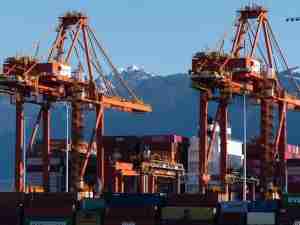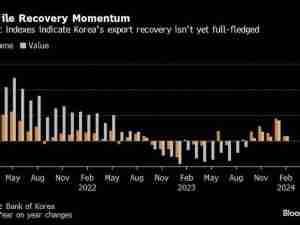The top US official overseeing export controls said he expects a deal with global allies to limit shipments of chip-production equipment to China in the near term.
Such a move -- if achieved -- will expand Washington’s efforts to keep cutting-edge semiconductor technology out of China and away from the country’s military.
“We expect to have a deal done in the near term,” Alan Estevez, under secretary of Commerce for industry and security, told an audience at an event hosted by the Washington-based Center for a New American Security on Thursday. Making the controls multilateral is “a work in progress,” he said.
The US Commerce Department unveiled the sweeping regulations on Oct. 7, aiming to curb the sale of advanced semiconductors and equipment to China and ban Americans from helping with the country’s development of chip technologies, striking at the foundation of the country’s efforts to build its own cutting-edge chip technologies.
Commerce officials have said they are working to coordinate export controls with other nations and that its rules will lose effectiveness over time if allies do not join the US.
The global chip-equipment market is dominated by three American suppliers -- Applied Materials Inc., Lam Research Corp. and KLA Corp. -- as well as Japan’s Tokyo Electron Ltd. and the Netherlands’ ASML Holding NV.
All of them are subject to complicated regulations that limit what they can sell to Chinese customers, but the non-American firms have more latitude in doing business with China than their US peers.
US officials have recently indicated that they may be able to restrict the flow of foreign chip machinery to China by demanding that any non-US tools that use even the smallest amount of American technology cannot be sold to China without Washington’s approval, a measure if adopted could affect both ASML and Tokyo Electron.
Estevez reiterated this on Thursday, saying that the so-called foreign direct product rule, an export-control measure that could allow the US to restrict the flow of foreign machines made with US technologies, is a tool Washington can wield when needed.
Information Sharing
Estevez said the US will share information on Chinese threats, which also affect other countries, during talks with allies on the multilateral approach, and that American officials are talking to companies directly too about export controls. He said US semiconductor manufacturing-equipment suppliers have told officials that they want export-control measures to be multilateral.
The BIS chief said he wants rules for American companies to be “fair with their competition across the globe, and it’s fair for their competition with each other,” adding that he and other officials such as National Security Advisor Jake Sullivan and Commerce Secretary Gina Raimondo are talking to allies about the issue.
Estevez said that Washington briefed allies before announcing the latest round of measures.
The move sent shock waves through the $550 billion industry. Already, US chip-equipment suppliers have stopped employees from working with China’s top memory chipmaker and indicated their sales will take a hit.
Estevez said that with the new rules, the US is targeting China’s capabilities at making advanced chips and it is not trying to eliminate the country’s capabilities at making more mature semiconductors altogether.








